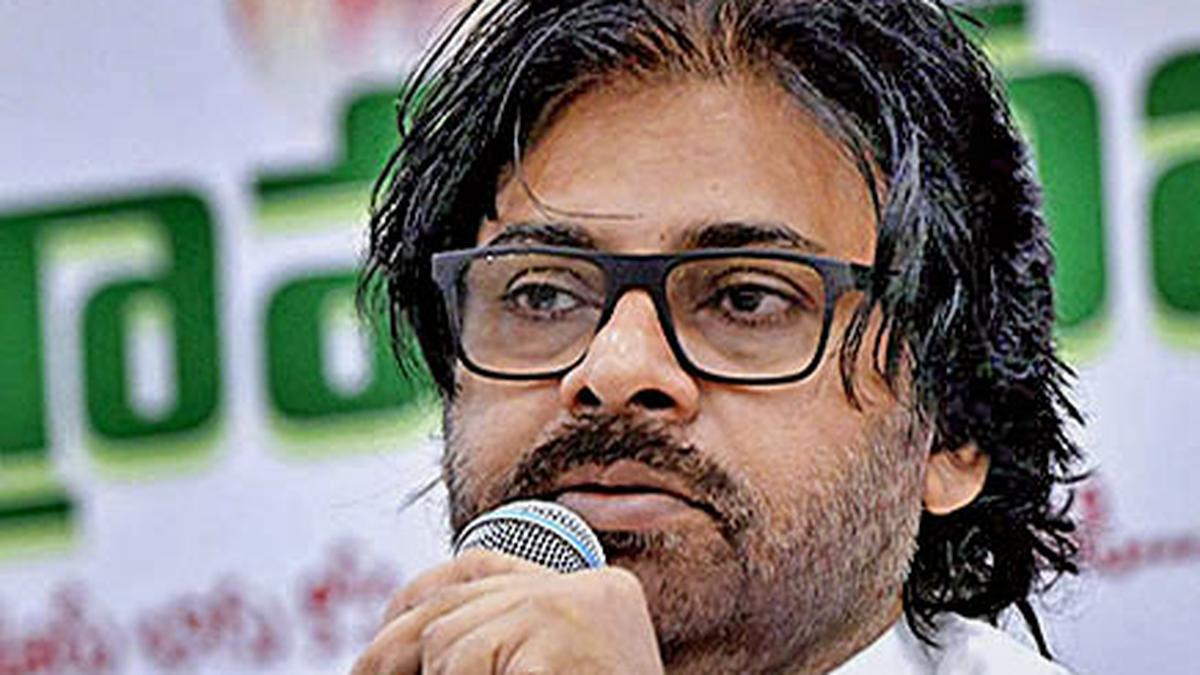In the heart of Pithapuram, a visionary initiative has taken root that promises to transform the dairy landscape of Andhra Pradesh. It's 2023, and Pawan Kalyan, the Deputy Chief Minister, is standing amidst a crowd, proudly inaugurating 12,500 Gokulams across the state. As he speaks about the benefits of this project, one can't help but recall a childhood memory of my grandmother’s farm, where cows were not just livestock but a source of livelihood and community bonding. This nostalgic moment underscores the significance of dairy farming in our culture and economy.
The Importance of Dairy Farming in Andhra Pradesh
Dairy farming plays a crucial role in the economy of Andhra Pradesh. It is not just about milk production; it is about livelihoods, culture, and community. The state has a rich history of dairy farming, and it continues to thrive today. Let's explore its significance in detail.
Economic Significance of Dairy Farming
First and foremost, dairy farming is a vital contributor to the state's economy. It provides income to approximately 1.5 million families. This is no small number. When you think about it, each family represents a story, a struggle, and a hope for a better future.
The dairy sector contributes about 5% to the state's GDP. This means that every liter of milk produced has a ripple effect on the economy. It supports not just the farmers but also the local businesses that rely on dairy products. From milk vendors to ice cream makers, the impact is widespread.
Impact on Rural Employment
In rural areas, dairy farming is often the backbone of employment. Many people depend on it for their daily bread. It creates jobs not only for farmers but also for those involved in processing, transportation, and retailing of dairy products.
- Farmers hire laborers for milking and caring for the animals.
- Local businesses thrive on the demand for dairy products.
- Women often play a significant role in dairy farming, contributing to family income.
As a result, dairy farming helps reduce poverty in rural communities. It empowers families and gives them a sense of stability. When families have a steady income, they can invest in education, health, and better living conditions.
Cultural Ties to Dairy Farming Practices
Dairy farming is deeply rooted in the culture of Andhra Pradesh. Cows and buffaloes are not just animals; they are part of the family. Many families have traditions that revolve around dairy farming. Festivals often celebrate the bond between humans and their livestock.
Local customs and practices are intertwined with dairy farming. For instance, many farmers follow traditional methods of milking and caring for their animals. This connection to the past is essential for maintaining cultural identity.
"Dairy farming is not just a business; it's a way of life for many families," says a local farmer.
This quote encapsulates the essence of dairy farming in the state. It highlights how integral dairy farming is to the lives of many people. It is about more than just profit; it is about heritage and community.
Understanding the Deep Roots
Understanding the deep roots and economic impact of dairy farming is essential to appreciate the significance of initiatives like the one led by Pawan Kalyan. Recently, he inaugurated 12,500 Gokulams across Andhra Pradesh, promoting the growth of the dairy sector through a cooperative model inspired by Gujarat.
This initiative aims to enhance the livelihoods of dairy farmers and strengthen the dairy industry in the state. By focusing on cooperative models, farmers can work together, share resources, and improve their production methods. This not only benefits individual farmers but also the community as a whole.
In conclusion, dairy farming in Andhra Pradesh is a multifaceted industry. It is an economic powerhouse, a source of employment, and a cultural cornerstone. The future of dairy farming looks promising, especially with initiatives that support and uplift the farmers. As the state continues to embrace its dairy heritage, the impact will be felt for generations to come.
Pawan Kalyan's Vision Behind the Gokulams
Pawan Kalyan, the Deputy Chief Minister of Andhra Pradesh, has embarked on an ambitious journey to transform the dairy sector in the state. His initiative, the Gokulams, aims to revolutionize traditional dairy farming by adopting successful practices from Gujarat's cooperative model. This approach is not just about increasing milk production; it’s about creating a sustainable and profitable ecosystem for local farmers.
Collaboration with Gujarat Cooperative Model
The Gujarat cooperative model has long been recognized for its effectiveness in empowering dairy farmers. Pawan Kalyan's vision is to replicate this success in Andhra Pradesh. But what does this mean for local farmers?
- Empowerment through Cooperation: The cooperative model encourages farmers to work together. This collaboration can lead to better pricing, shared resources, and collective bargaining power.
- Access to Modern Practices: By adopting Gujarat's methods, farmers in A.P. can learn about modern dairy practices. This includes better breeding techniques, improved feeding practices, and efficient milk processing.
- Community Building: The cooperative approach fosters a sense of community among farmers. They can share knowledge, experiences, and support each other in their endeavors.
As Pawan Kalyan states,
"We aim to empower farmers with knowledge and resources to succeed."This empowerment is crucial for the growth of the dairy sector in Andhra Pradesh.
Goals for Sustainability and Profitability
One of the primary goals of the Gokulams initiative is to ensure sustainability. But how can sustainability and profitability go hand in hand?
- Eco-Friendly Practices: The initiative promotes eco-friendly dairy practices. This includes using organic feed and sustainable farming techniques that protect the environment.
- Long-Term Profitability: Sustainable practices can lead to long-term profitability. By reducing costs and increasing efficiency, farmers can enjoy better margins.
- Market Access: The Gokulams will help farmers access larger markets. This means they can sell their products at competitive prices, increasing their income.
By focusing on sustainability, Pawan Kalyan is not just looking at immediate gains. He envisions a future where farmers can thrive without harming the environment.
Training and Resources for Local Farmers
Training is a cornerstone of the Gokulams initiative. Farmers need the right tools and knowledge to succeed. But what kind of training is being offered?
- Workshops and Seminars: Regular workshops will be conducted to educate farmers about modern dairy practices. These sessions will cover everything from animal husbandry to financial management.
- Access to Resources: Farmers will have access to resources such as veterinary care, quality feed, and modern equipment. This support is essential for improving productivity.
- Mentorship Programs: Experienced farmers will mentor newcomers. This guidance can help new farmers avoid common pitfalls and accelerate their learning curve.
The focus on training and resources is a game-changer. It equips farmers with the skills they need to adapt to changing market demands.
Conclusion
The Gokulams initiative, modeled on Gujarat's success, aims to bring modern practices to traditional dairy farming. By collaborating with the Gujarat cooperative model, focusing on sustainability, and providing training and resources, Pawan Kalyan is paving the way for a brighter future for dairy farmers in Andhra Pradesh. This initiative is not just about milk production; it’s about creating a thriving community of empowered farmers.
Implications for Rural Development and Community Well-being
The recent inauguration of 12,500 Gokulams across Andhra Pradesh by Deputy Chief Minister K. Pawan Kalyan marks a significant step towards enhancing rural development. This initiative, inspired by the successful Gujarat cooperative model, holds the potential to transform the dairy sector in the region. But what does this mean for farmers and local communities? Let's explore the implications.
Potential for Increased Income for Farmers
One of the most promising aspects of the Gokulam initiative is the potential for increased income for farmers. With proper implementation, farmers could see their income rise by an estimated 20%. This increase is not just a number; it represents a chance for families to improve their living standards. Imagine a farmer being able to afford better education for their children or invest in better farming equipment. It’s a game changer.
But how does this work? By establishing cooperative dairies, farmers can pool their resources. They can share knowledge, reduce costs, and increase production efficiency. This collaborative approach can lead to higher milk production, projected to improve by 30%. More milk means more sales, which translates to more income.
Nutritional Benefits for Local Communities
Access to fresh dairy products is crucial for health. The Gokulam initiative promises to provide local communities with better access to nutritious milk and dairy products. This is particularly important in rural areas where access to fresh food can be limited. Improved nutrition can lead to better health outcomes, especially for children and the elderly.
Consider this: when families have access to fresh milk, they can incorporate it into their diets. This can lead to stronger bones, better immune systems, and overall improved health. The benefits extend beyond just the individual; healthier communities are more productive and resilient.
Fostering Community Bonds Through Cooperative Efforts
Another significant implication of the Gokulam initiative is the fostering of community bonds. When farmers come together to form cooperatives, they build relationships based on trust and mutual support. This sense of community can lead to collaborative efforts that extend beyond dairy production.
For instance, farmers can work together on various projects, such as improving local infrastructure or organizing community events. These activities strengthen the social fabric of rural areas, making them more cohesive and supportive. As one agriculture expert remarked,
"This initiative could revolutionize not just dairy but entire communities."
Broader Implications for Economic Uplift
The broader implications of the Gokulam initiative are profound. It promises not only economic uplift for individual farmers but also community cohesion. By improving the economic status of rural families, the initiative can lead to a more vibrant and sustainable rural economy.
Moreover, the cooperative model encourages innovation and entrepreneurship. Farmers can explore new markets, diversify their products, and even engage in value-added processing. This can create jobs and stimulate local economies, further enhancing the quality of life in rural areas.
In conclusion, the Gokulam initiative represents a significant opportunity for rural development in Andhra Pradesh. With the potential for increased income, improved nutrition, and strengthened community bonds, the implications are far-reaching. As farmers and communities embrace this model, they can look forward to a brighter, more prosperous future. The journey may be challenging, but the rewards are worth the effort. The promise of economic uplift and community cohesion is not just a dream; it is within reach.


